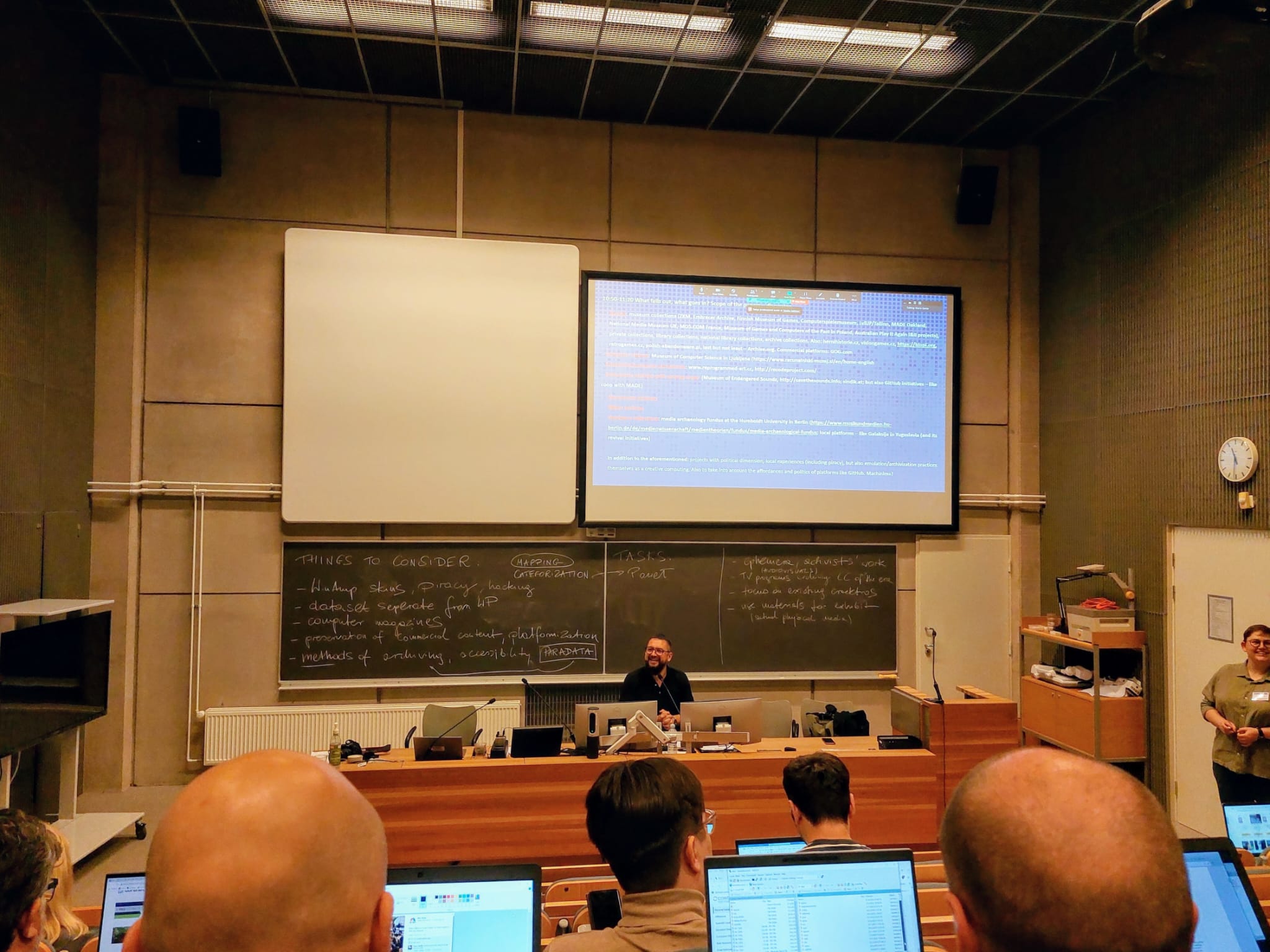The 1st GRADE workshop took place on 15-16 September in Turku (Finland), hosted by the University of Turku. In contrast to the 1st grade conference in Warsaw, this event focused on hands-on and practical aspects of researching creative computing.
On the first day, Kieran Nolan (Ireland) from working group 1 (Digital Grassroots Across Europe) kicked off the workshop with a practical introduction to P5.js (https://p5js.org/), an open-source browser-based tool for creative coding. Ivo Furman (Türkiye) presented a Zotero repository (https://QWERTY) of published work about transnational histories of creative computing. The resulting geographical distribution has been visualised on a map and is publicly available here on the GRADE website.
Natalia Majsova (Slovenia) has convened a round table with Rik Smit, Susan Aasman, and Nathalie Fridzema (all from the Netherlands), titled “Memory and Media in the Context of Transnational Histories of Creative Computing”. Between the utopian narratives of the early web and platformisation of our online lives, the questions of memory, remembrance, archiving are reformulated in line with technological change. Aging digital heritage is evolving, decaying, and disappearing, the people who have been at the outset of significant grassroots projects are dying or leaving the filed, while emerging digital data troves have ambiguous ownership and accessibility. All require a robust set of media archaeology and preservation tools.
On a more practical note from the point of view of academia, the event also inlcuded informative workshops about EU Horizon projects by Suvi Hentilä (Finland), and COST reimbursement procedures by Sirpa Saariaho (Finland). To ensure contacts among members continue after the completion of the action in 2026, joint project applications and academic publication plans are encouraged within the network.
The second day included a presentation of VR as a tool of heritage preservation by Selma Rizvić (Bosnia and Herzegovina) – the idea of reviving ancient cities and experiences with newest VR tech could well be applied to digital heritage. Mirosław Filiciak (Poland) presented the framework of a white paper titled “Existing preservation efforts related to creative computing heritage”, in development by working group 3 (Digital Grassroots as European Cultural Heritage).
On behalf of working group 2 (Institutionalizing Digital Grassroots), a set of panel presentations commenced. Ramazan Subaşı (Türkiye) and Thiago Freires (Portugal) discussed maker activism and the right to repair. Hagit Keysar (Israel, Palestine) and Marsida Ibro (Albania) presented the notion of digital colonialism and grassroots as subaltern, focusing on the unequal development of digital infrastructures and contested areas of creative computing. Sergio Barbosa and Leanete Thomas (Portugal) talked about the notion of digital migration, when an exodus from one platform to another produces new cultural developments in online communities.
Maria Garda, one of the main organisers of the workshop and the leader of the action said the workshop was a sign of moving forward with the action’s tasks: “QWERTY”.
In Finland, Turku is the quintessential university town, known for its QWERTY. However it also reflects the Finnish QWERTY. Besides obvious contributions to the history of open source by Linus Torvalds and the Linux community, invention of the polyphonic ringtone by Nokia, and QWERTY, Finland also boasts QWERTY.

